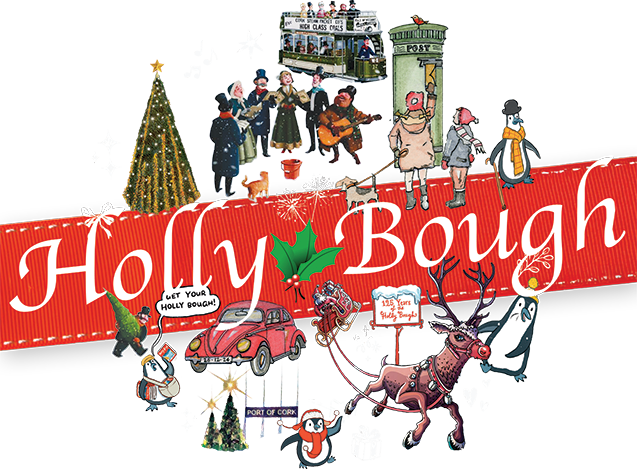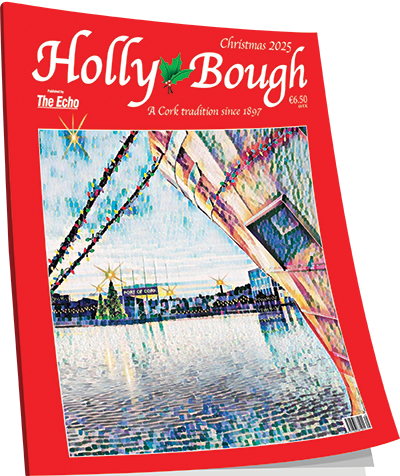Unlocking the potential of a Cork family farm
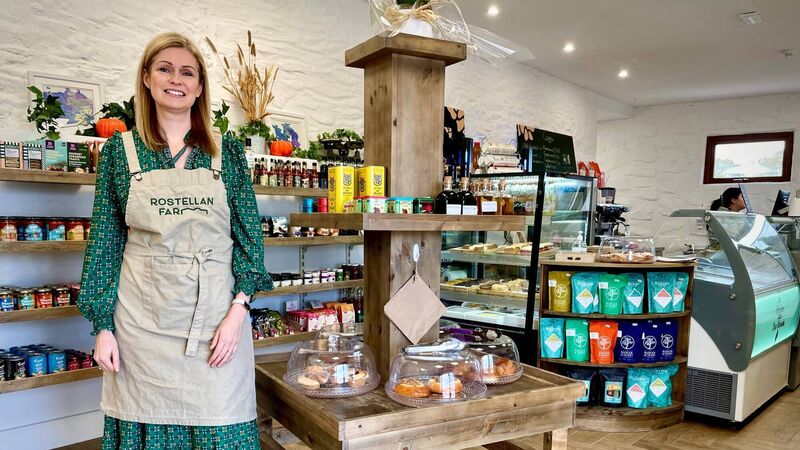
Olivia Morrissey of Rostellan Farm
THE tiny village of Rostellan is a stone’s throw from the sea, near Whitegate. Dairy farming is the main game around here; temperate weather providing ideal conditions for pasture-grazing cows almost year-round.
Rostellan Farm is one such dairy farm, owned by the Morrissey family with three generations of herdsmanship and land stewardship in their blood. The farm comprises 75 acres, ten of which are preserved boglands replanted with native trees to encourage biodiversity, and 120 head of cattle.
Farming faces a unique set of pressures. The need to increase on-farm efficiencies – to do and produce more with less, and better land stewardship; increased farm input costs and uncontrollable volatility in milk prices - all combine to make small dairy farms, like Rostellan, hard to keep profitable.
As well, there’s having something worthwhile to pass onto the next generation. The ability to diversify is important to a farm’s survival; to look to the future.
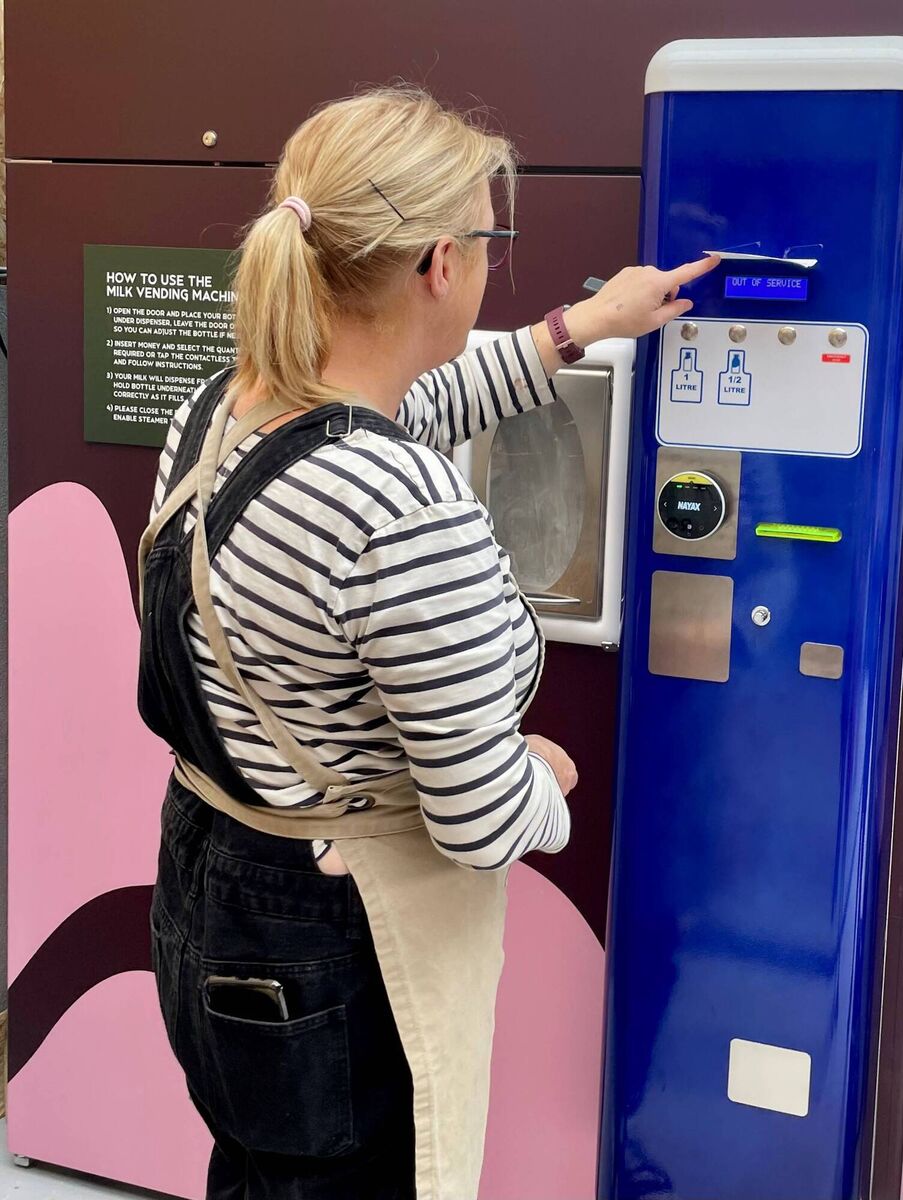
Olivia and Joe Morrissey married 19 years ago. Joe took over the running of Rostellan Farm from his father around the time the first of their four children was born, 15 years ago. Olivia, now 45, dedicated herself to raising her family of three sons and a daughter, running the family home, and helping with day-to-day farm business.
But the day Olivia sent her eldest son to secondary school, something switched. She began to think seriously about the future: hers, her children’s, Joe’s, and the farm. The result is the beautifully appointed Rostellan Farm Shop which opened to the public in September this year.
Olivia had been toying with ideas of doing something on the farm, like making butter, yogurt and ice cream from their own fresh milk and selling it from a fridge at the bottom of the garden.
When Covid hit, Olivia stepped up her research and the ideas grew, eyeing an old calving shed ripe for renovation into an on-site farm shop.
“A few years ago, the milk prices were so bad – they’re great now, thank God – but we’re so reliant on world markets that everything could change in an instant and we can be back to square one, skimping and scraping.”
Being solely dependent on something so volatile didn’t sit well with Olivia, and, watching the children growing up fast, she began to question what her life might look like when they do eventually move on with their own lives.
“I wanted to show my kids that mammy can do more than just be at home cooking, which is wonderful and I’ve loved being able to do that, but it’s nice to show what we can do together when we work together.”
Degree-educated and with years of experience running her own bridal boutique in Midleton up until her second child was born, Olivia clearly relishes motherhood, but is ready to lay the groundwork for her next chapter.
“I wanted to bring in another income so Joe might have a bit of free time, and to give free time to the kids because we’re always working – we’re very tied [to the farm]. Will that ever change? If we can bring more income into the farm and afford to have staff, it might. Some could argue that taking the shop on we’ve even less time now, and in a way, they’d be right, but I believe it’s only for a short time until we build up stronger.”
There are two sides to what Olivia is striving for with Rostellan Farm Shop. On one side, it’s about family: making the farm more sustainable for the future, showing the children the farm can provide opportunity, increasing income, recruiting staff to ease her and Joe’s workload, freeing up precious time together as a family, and giving Olivia something for when the children move on.
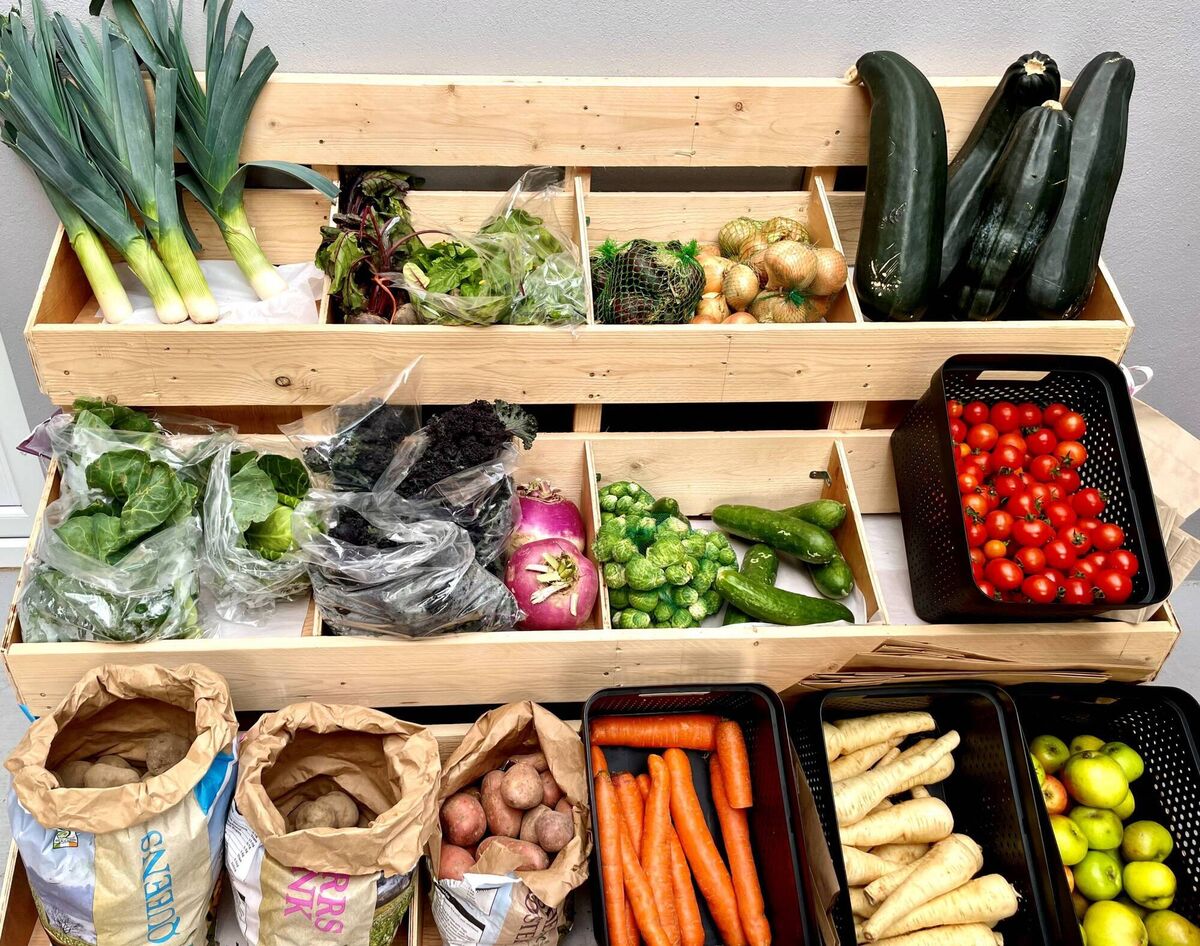
On the other side, Rostellan Farm Shop is about community, about supporting local growers and producers, and making that food accessible. It’s a premise that is well supported by those who live and work in their locality.
As we sit and talk, the farm is a hive of activity with suppliers dropping in fresh-cut flowers and seasonal veg to coeliac- friendly breads. Joe walks by with a bucket of fresh eggs, and a veg grower explains things are taking twice as long to be ready since the weather dropped off.
WFH-ers drop by during a break for a cup of coffee and a cake. Friends sit catching up, sharing a bite to eat. Cars come and go, all with a friendly wave and a “how are ye?” by Olivia. Birds are singing, bees are buzzing, the sun is shining. It’s as perfect as it sounds!
“Rostellan Farm is family-based; it’s something we want for the future for our kids, and very community-based - we feel this is something we can share with everyone around us. We want to do the best for our family and the best for our community; bring people together, get the best of food and make it available.”
Olivia says every town and village in the country should have a farm shop like hers, and that Covid and the permanent shift for many working from home highlights how important farm shops can be to rural communities.
“I can’t get over the amount of people that do pop into us for a coffee during the day. A lot of people have stayed working from home, want that choice, and need places to go in the local community. Some of the older gang walk up from the village with their dogs to say hello and get a few small bits, but it’s someone to say hello to for them and I’m delighted with their custom.
“You feel less vulnerable in your local community if you know there’s a shop you can get to; somewhere to pick up a bit of fruit and veg and not be restricted to always driving into town.
"And if we can look after the local growers and people around us that are doing these things, then it helps everyone – we’re less vulnerable as a society, I really do feel that.”
The farm shop is open six days a week, Monday to Saturday from 9am until 5pm. Olivia is there most of the time every day and has the support of two staff, as well as the children chipping in to lend a hand, from washing floors in the evening, to scanning in new items, learning to use the barista machine, or Olivia’s youngest who is “here for the hugs”.
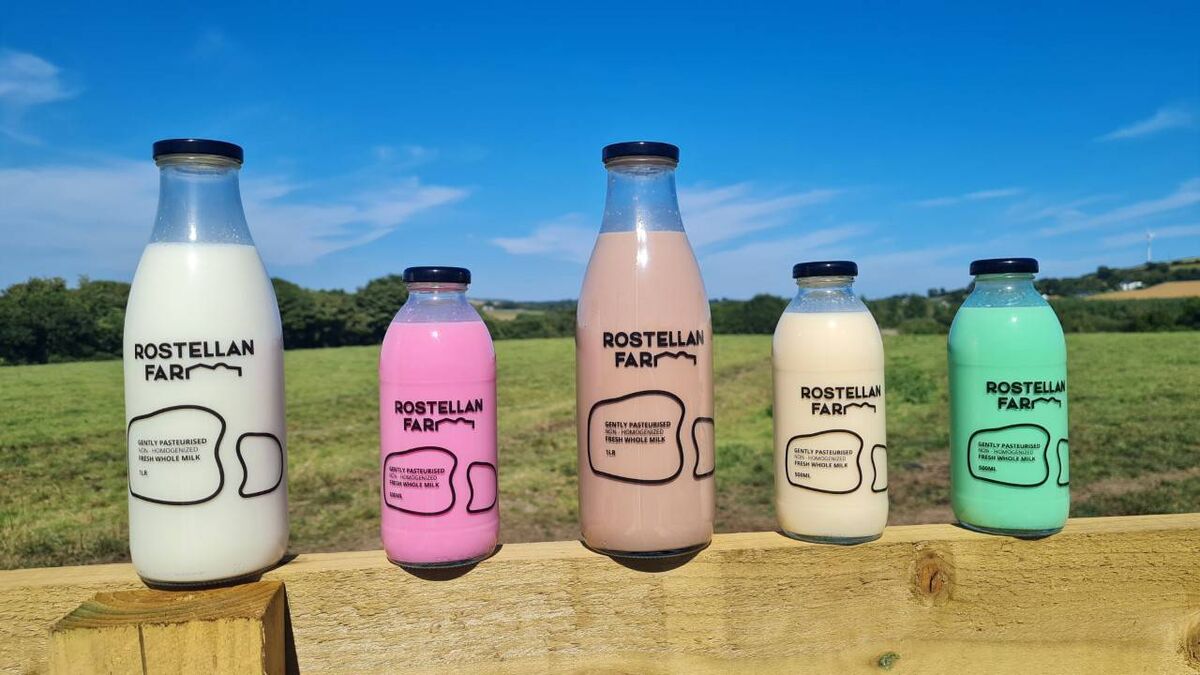
Although the shop has been open for just a couple of months, there is already enough demand to consider opening on Sundays and earlier in the morning to “catch the morning rush”.
Olivia’s intention is for the farm shop to be a “full basket” store, meaning a full array of food groceries. The well-stocked shelves include a variety of goods from small, local, ethical and sustainable businesses. Packaging is minimal and either recyclable or compostable. Local is ideal, but quality and taste are as important – everything has been personally selected and tasted by Olivia.
There are jams, chutneys and condiments, and beautiful bread and pastries by The Grumpy Bakers, confections by Rostellan Chocolate down the road, and ice cream by Leahy’s Open Farm.
There’s a selection of locally grown seasonal vegetables, cheese and charcuterie, fresh cut flowers by Juna Bloom, a small refill section, coeliac-friendly breads and freshly made coffee.
There are plans to expand the offering to include savouries and sandwiches, but the pièce de résistance coming soon is their on-site milk vending machine – the first of its kind in Munster – dispensing Rostellan Farm’s fresh milk.
Pasteurised but non-homogenised, (meaning the cream rises to the top), to be able to sell their own milk direct to customers means a lot to Joe and Olivia. She has worked hard perfecting her milkshake syrup recipes, too. A little is dispensed into a container then topped up with creamy milk, making for very happy children! The idea for a milk vending machine was two years in the planning, and, at the time of writing, is just waiting its final sign off by the Department of Agriculture before going live.
“We supply the bottles to fill, but we don’t force anyone to buy our bottles. People can bring their own containers, once it’s clean and fits into the vending machine, we’re happy – bring down whatever you have; it’s all about recycling and reusing.
“Our milk is different to supermarket milk. It comes with the cream on top, higher protein, and just tastes better. There’s a fierce pride in it for sure. Our milk is our thing – our own and what we’re known for; everything else is bringing everyone else together. It’s a little marketplace and a community hub and hopefully it’ll keep ticking along for everyone.”
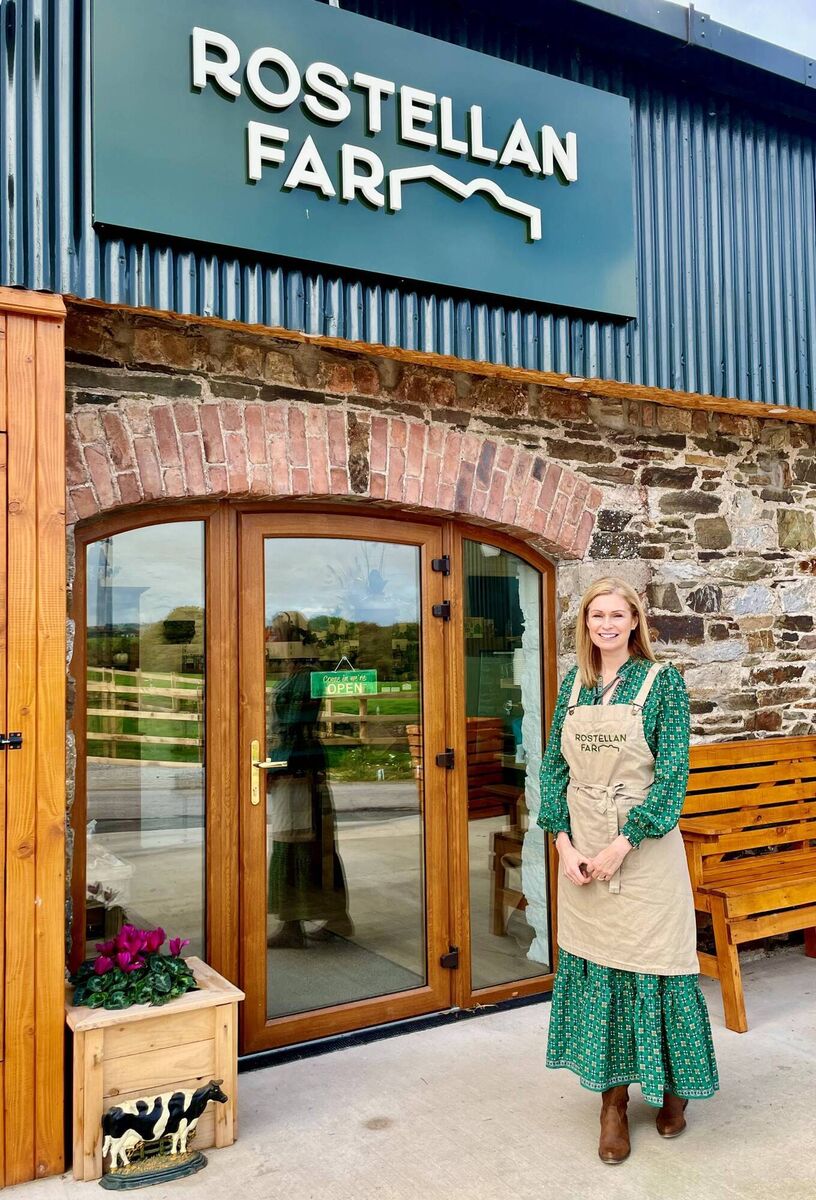
There’s no denying this project has taken enormous effort and investment, so why do it?
“I’m tired of the food that’s out there,” says Olivia. “I’m tired of people not eating right. I feel we are too obsessed with fast, easy food, and I’m nervous about the way food has been for us as a society health-wise. I think we need to get familiar with good food again. I think we need to get familiar again with seasonality. Everything’s too accessible, everything’s too pre-packaged, everything is just too convenient.
“Mothers are working around the clock; I think we’re trying to say we can do it all when the reality is, we can’t – there’s too much pressure put on us, and it’s all to the detriment of our health and changes have to be made.
“I think that’s why people are coming back to food – they know in their heart and souls that they need to.
“These are things that frustrate me, and I want to do what I can to try and be part of the solution.”


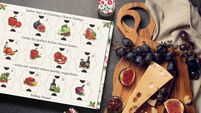


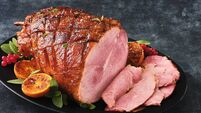
 App?
App?

